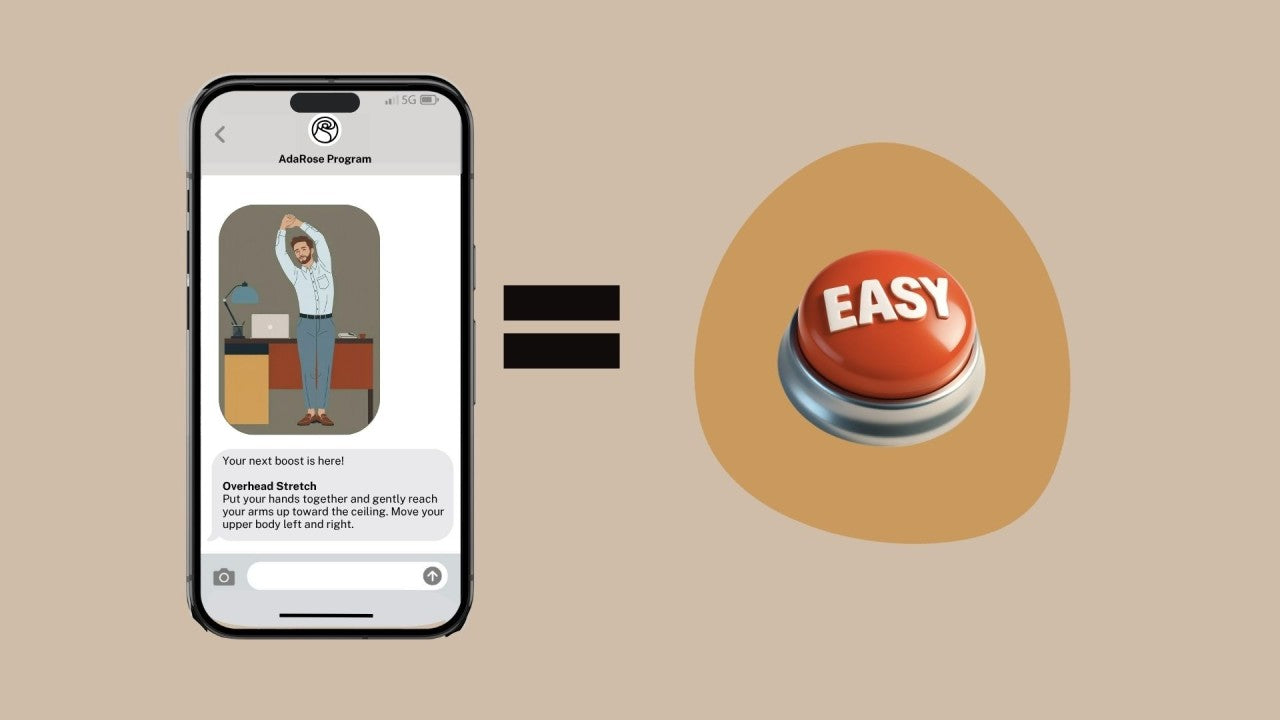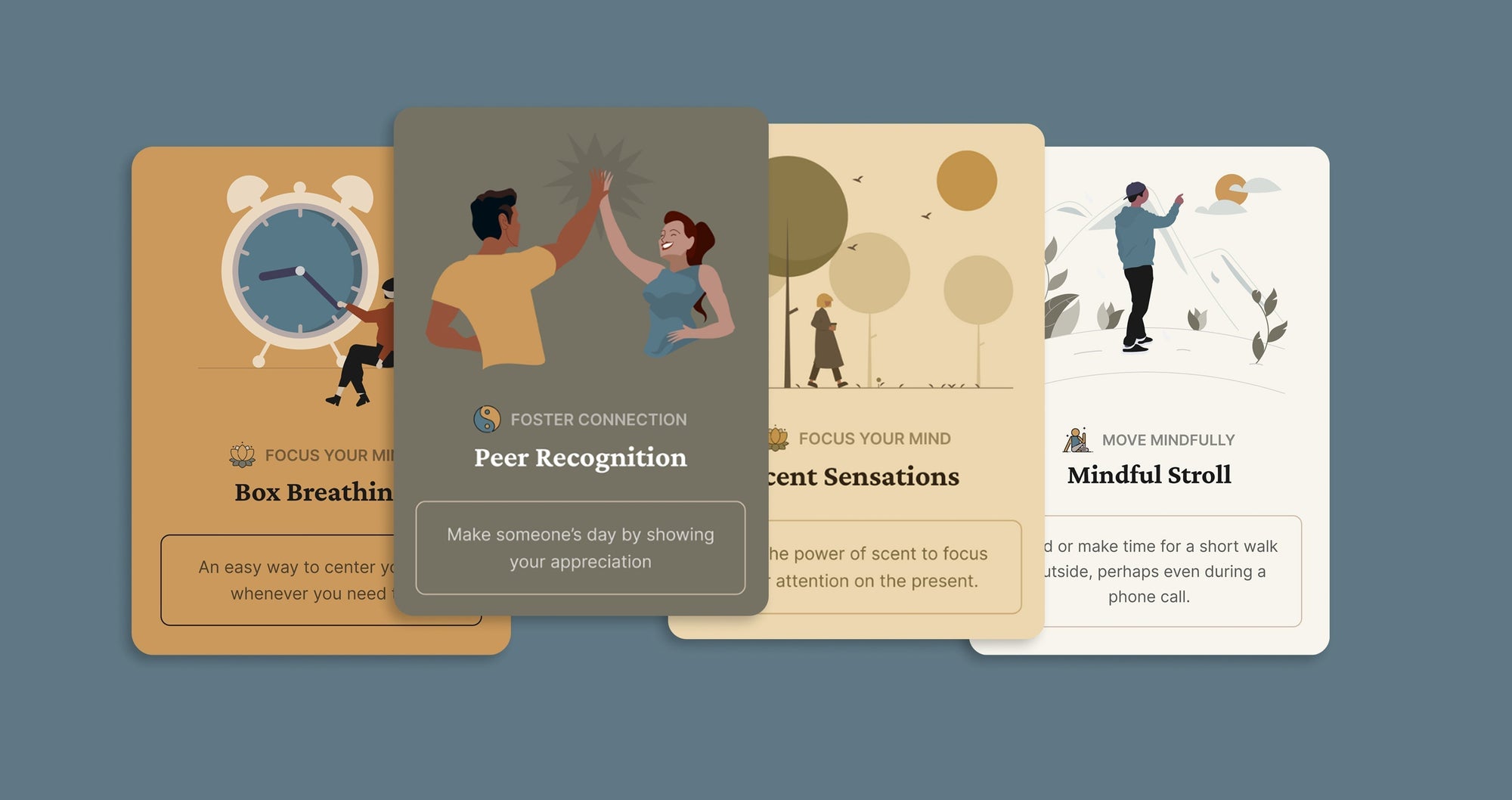For many of us, it's tempting not to think about our health until something goes wrong, especially when we’re young.
In high school my best friend and I often walked to the corner store together to buy and devour an entire roll of raw frozen cookie dough. That was equivalent to more than a dozen cookies each! Although raw cookie dough is delicious, moderation is key!
At the time, my overall health wasn't on my mind. My growing body absorbed the calories, and I didn’t notice how cookie dough or, for that matter, fruits and vegetables impacted my ability to run on the track team, or how I felt.
Fortunately I broke that habit. My metabolism has changed, but more importantly, so has my mindset. I recognize that too much sugar makes me feel light-headed, and eating a few extra desserts over the holidays translates directly into weight gain. I’m also aware of the damage from sugar and saturated fat that is harder to perceive, including inflammation that can lead to numerous serious health issues.
Why is it important to take control of your health?
As a grown up, though I still love a little raw cookie dough, I’ve taken to heart the importance of owning your own health on an everyday basis. I know that small changes, like 30 minutes of walking every day, or a few extra hours of sleep, can make a big difference over time. If we don’t prioritize health and wellness, bad habits can catch up with us in the long term, even in life threatening ways, like heart disease, diabetes, or a stroke.
At AdaRose, one of our core goals is to make what is good for you also appealing and fun. We’ve put together some tips on how to make life changes that are good for your health and ways to use digital health tools to make your life easier.
Building on both those themes, a few years ago, I spent a week at the world’s most influential technology event, the Consumer Electronics Show (CES). There I learned about some fun new ways technology is making it easier to support a healthy lifestyle including improving physical activity, mental health, and building healthy habits.
At CES I heard a lot of hype about the metaverse and virtual reality. While tools like the Oculus headset are fun and may provide great options for improving wellness and health in the near future, you may not need any devices beyond the basic ones you already own, like your TV and smartphone.
How to seamlessly integrate health and wellness into everyday life
In the past, people would wait until they felt ill and then go to see the doctor, and healthcare used to happen mostly in doctor’s offices and clinics. But technology is changing that. Increasingly, healthcare can happen when and where you go about your daily life: in the places where you “work, live, pray, and play” as former Surgeon General Regina Benjamin used to say.
For example, one of the most positive things to come out of the COVID pandemic is the growth of telehealth, which went up 38 fold according to McKinsey & Company. Telehealth includes video visits between doctors and patients and also other kinds of remote care, such as remote patient monitoring using wireless medical devices.
What’s amazing about telehealth is that you can get healthcare services from the convenience and safety of home. That means you save the time and money that it would take to travel to a doctor’s office, and you reduce your risk of exposure to contagious diseases.
The pandemic also increased the use of many digital tools for wellness, from wearable monitors like the Apple watch to smart gym equipment like the Peloton. But I bet you didn’t know that some people are now using their TVs as health hubs.

The TV company LG has recently teamed up with Independa, a health company, to deliver digital health and wellness programs to the public via interactive TVs. This approach especially appeals to older adults and those with eyesight issues who are more comfortable using TVs than smaller screens.
People can also use TVs to message and video chat with friends, which helps build social connections. This is important since isolation and loneliness have gone way up in the last several years as a result of social distancing because of the COVID pandemic.

Another example of technology that can seamlessly bring healthcare into the flow of your life was created by the company PerfectCorp. It develops virtual reality and artificial intelligence-based apps and tools to help people virtually try on new makeup looks. They are especially popular with members of Gen Z.
Though the company’s initial focus has been on beauty and entertainment, they are increasingly using their technology to detect skin problems ranging from acne to melanoma. In the near future an experience like buying a new face moisturizer could actually be lifesaving.
Motivation to take control of your health today
Even with new and fun tools to make health and wellness fit more seamlessly into your daily life, you may need motivation. A hero of ours at AdaRose is athlete, speaker, and Parkinson’s patient Jimmy Choi.
Despite his diagnosis of Young Onset Parkinson’s disease, Jimmy has become an American Ninja Warrior and a World Record Holder by taking a few small steps every day to improve his own health and fitness. He’s amazing! Here’s our interview with Jimmy (and a transcript) in case you missed it.





